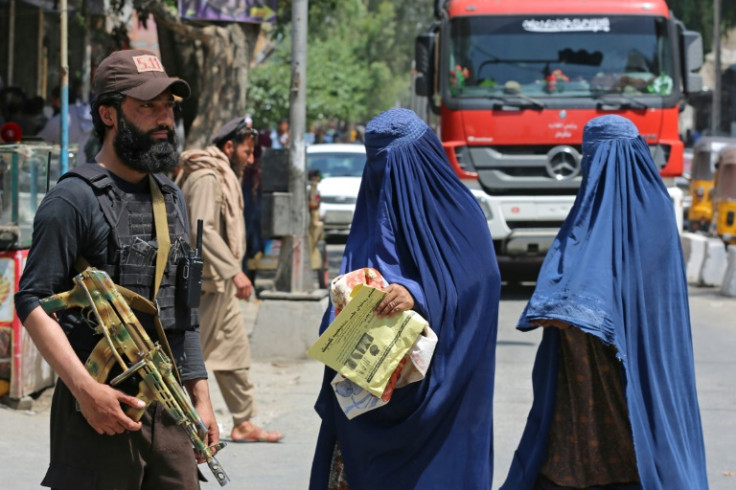
The Taliban's supreme leader, Hibatullah Akhundzada, believes that his regime has done better for women in Afghanistan than any previous government.
Akhunzada made the claims in a radio broadcast and listed the kinds of "rights" that have been given to women since the Taliban took over Afghanistan in 2021. He said that unlike previous governments, the Taliban regime does not marry off women and widows by force.
"We have issued a six-principle decree regarding women's rights. The previous governments have not provided the rights of women," said Akhundzada, the leader of the Taliban-led Islamic Emirate of Afghanistan.
"We said don't marry women by force, don't violate mahr [amount paid by groom to the bride at the time of marriage as a traditional gift], don't force women for nikah, don't marry a widow by force. We give women the heritage," TOLO News quoted him as saying.
Akhunzada went on to claim that they have also not implemented the Islamic punishment of Hudud in the country. Hudud involves punishments such as amputation, flogging, and stoning.
He even praised his regime for not implementing Hudud. The practice was the highlight of the Taliban's rule in Afghanistan in the 1990s.
The big picture:
The Taliban claims women are doing better in their regime as opposed to their situation under previous governments.
But their actions could not be further away from reality. Women have been barred from getting an education, from working, from visiting parks, from travelling alone, and from wearing whatever they want.
The statement from Akhunzada came days after a report claimed that the Taliban is arresting women for not wearing a hijab "properly". They reportedly began arresting women soon after they took over Afghanistan in August 2021 for not following the strict dress code imposed by the Taliban authorities.
In 2022, the Taliban government made it mandatory for women to cover themselves from head to toe using a "chadori," an all-covering burqa that also veils the face.
The Taliban's Ministry for the Propagation of Virtue and Prevention of Vice said that it is "required for all respectable Afghan women to wear a hijab," or a headscarf, and added that the chadori is the "best hijab" of choice.
"If a woman is caught without a hijab, her mahram (a male guardian) will be warned. The second time, the guardian will be summoned [by Taliban officials], and after repeated summons, her guardian will be imprisoned for three days," added the statement. The decree even suggested that women should not leave their houses unless necessary.
Several United Nations reports have highlighted that Afghan women are doing even worse. Recently, a UN report claimed that the Taliban government in Afghanistan has been sending female abuse survivors to prison while claiming that it is for their "protection".
These survivors of gender-based violence are sent to prison in case they don't have a male guardian or a male relative with whom they could feel "safe".
The report also highlighted that the Taliban regime has shut down as many as 23 state-sponsored women's shelters because they feel that there is no need for such shelters in Afghanistan.
The United Nations has even labelled the Taliban's actions in Afghanistan as "gender-based apartheid."
For the last two years, Afghan nationals have been forced to abide by strict Sharia laws and a strict apartheid system that has been implemented by the Taliban.
The de facto Ministry of Interior says that all cases of violence against women are solved according to Sharia laws. Sharia represents the moral code and religious law of a prophetic religion and is the expression of Allah's command for Muslim societies.
If civilians fail to conform to their extreme leaders, they are handed physical punishment and prison sentences.







